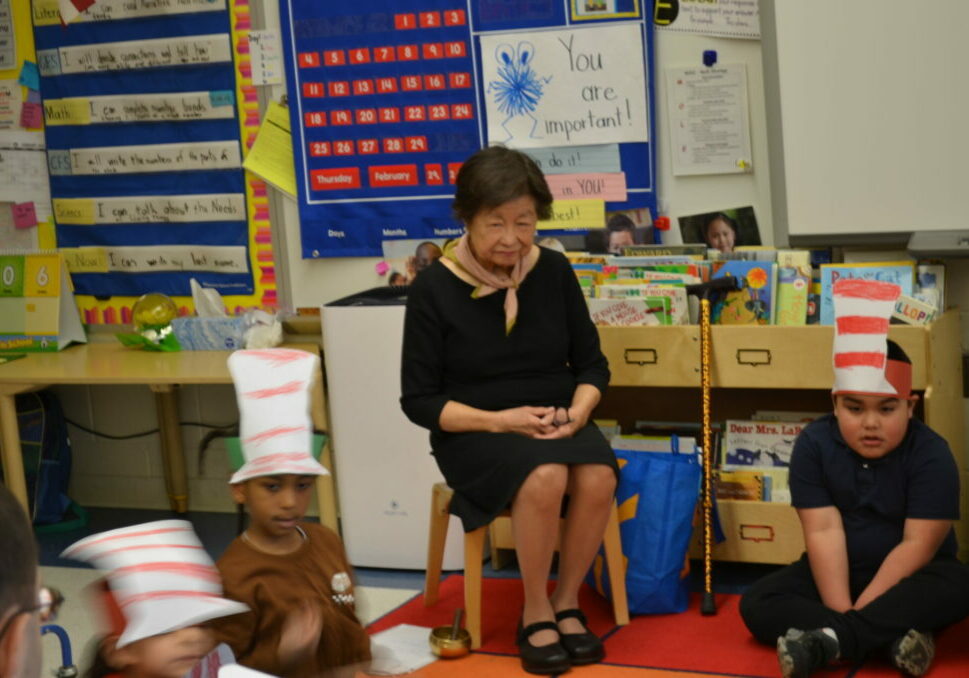NJEA ACCESS consultant Dorie Tchourumoff works regularly in support of many of the educators at Thomas H. Dudley Family School in Camden. She holds peace circles for all grade levels at Dudley, which houses grades pre-K through 8.
Teachers also welcome Dorie into the room for the peace circles, and for other types of support.
Circles are safe havens
- They help us step out of ordinary time into a safe and accepting environment in which we can explore our healing.
- With open minds, we work together to discover the best ways to remove obstacles to healing, alleviate suffering, and deepen our capacity to heal.
- With open hearts, we access our own inner guidance to understand where the greatest healing—in body, emotions, mind and spirit—can occur.
Circles are used in several classrooms to reiterate the structure and detail of a peace circle. With the younger grades, students typically gather on their reading rug. In the older grades, chairs are set in a circle. A talking stick, stone or other item is used. The talking stick, used in many Indigenous cultures, is an ancient and powerful communication tool that ensures a code of conduct of respect is followed during meetings. The person holding the stick, and only that person, is designated as having the right to speak and all others must listen quietly and respectfully.
Circles are built on a foundation of kindness and respect
Circle participants agree to:
- Treat each other with kindness and respect.
- Listen with compassion and curiosity.
- Honor each other’s unique ways to healing and don’t presume to advise or fix or try to save each other.
- Hold all stories shared in the circle in confidence.
- Trust that each of us has the guidance we need within us.
- Rely on the power of silence to access that guidance.
Source: healingcirclesglobal.org

